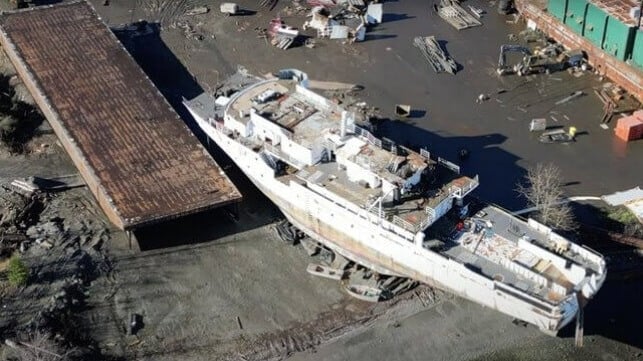British Columbia authorities have issued a pollution abatement order to local ship recycling company Deep Water Recovery (DWR), delivering a victory for local residents who had opposed the company's operations. DWR is currently required to stop discharging hazardous materials and toxic wastewater that pose health, safety, and environmental risks.
In issuing the pollution abatement order, British Columbia's Ministry of Environment and Climate Change Strategy said repeated testing of samples taken from the site starting in 2022 found high levels of pollutants remained. said. These include cadmium, copper, iron, zinc, and septic tank emissions, among others. The agency concluded there was a reasonable basis to conclude that “materials on or around the land” occupied by DWR are causing contamination.
The order follows widespread protests by Union Bay residents under the banner of Concerned Residents of Baynes Bay (CCOBS). Residents have demanded the closure of the demolition site where DWR is dismantling the former National Oceanic and Atmospheric Administration (NOAA) marine research and survey vessels Miller Freeman and Surveyor. (NOAA has no ongoing relationship with these decommissioned vessels.) Community groups supported by the NGO Shipbreaking Platform say the operation risks releasing dangerous pollutants into the marine environment. insisted.
The order requires DWR to immediately stop releasing toxic waste into the environment and to send independent, qualified experts to conduct a detailed investigation of the site and any progress that may contribute to the release of pollutants. We are asking them to carry out the activities in the middle.
British Columbia's Ministry of the Environment warned that failure to comply with the order could result in DWR being fined up to C$300,000, imprisoned for up to six months, or both.
Founded in British Columbia in 2016, DWR works to salvage, dismantle and recycle rail assets such as ships, barges and locomotives. In 2019, the company purchased a multi-zone property in Union Bay that includes 15 acres of marine industrial land and 27 acres of water dedicated to ship recycling.


